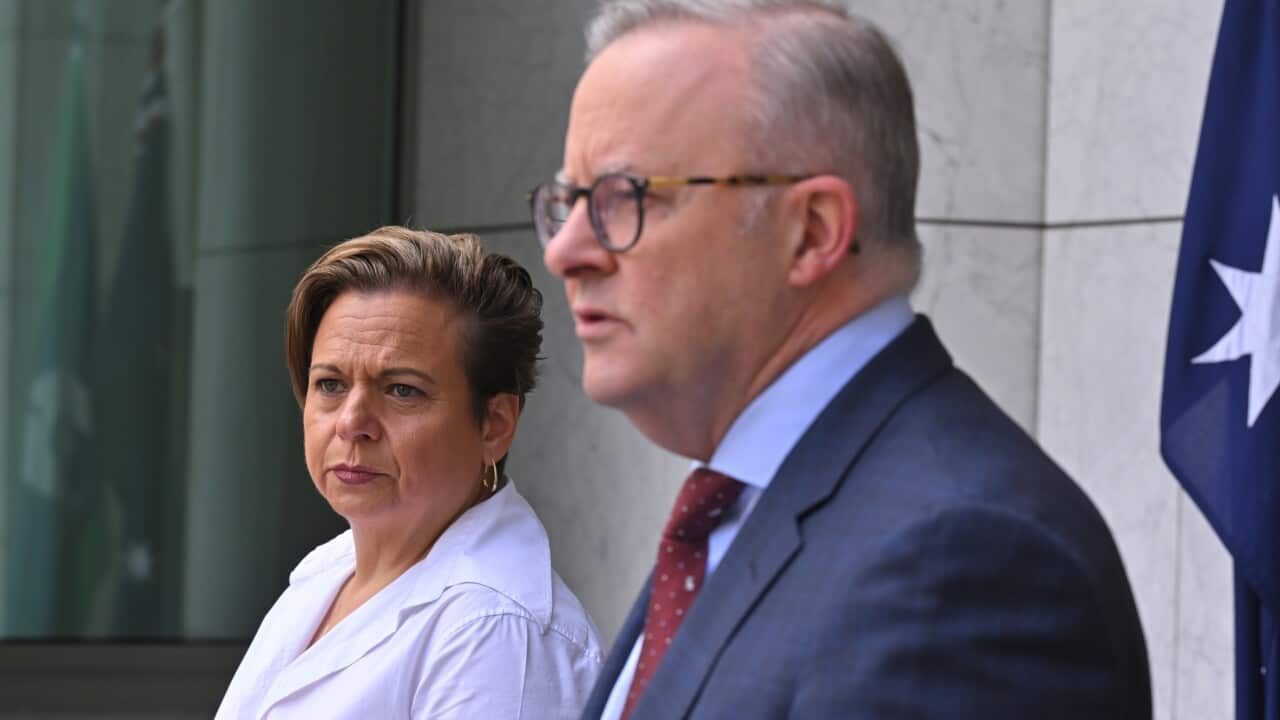The government has withdrawn its controversial misinformation bill.
The Communications Legislation Amendment (Combating Misinformation and Disinformation) Bill 2024 passed the House of Representatives in November, but was withdrawn later that month.
“Based on public statements and engagements with Senators, it is clear that there is no pathway to legislate this proposal through the Senate,” Communications Minister Michelle Rowland said.
"The Bill was focused on combatting the most seriously harmful content on digital platform services and it contained strengthened protections for freedom of speech."
But several Senators raised concerns the bill could negatively impact free speech.
LISTEN TO

Can we fight misinformation without threatening our freedom of speech?
SBS English
09/09/202406:20
The government originally stated concerns over democratic Australia’s free flow of information, particularly on digital platforms, easily spreading misleading or false information harmful to Australians.
The bill sought to combat this by ‘empowering’ digital communications platform providers to respond and manage the risk of misinformation and disinformation.
In a statement recognising the bill’s withdrawal, Minister Rowland acknowledged that “no single action is a perfect solution”.
“We must continue to improve safeguards to ensure digital platforms offer better protections for Australians,” she said.
'A better balance'
Misinformation and disinformation are the largest global risk right now, according to the World Economic Forum (WEF).
Governments around the world are implementing regulations to combat the risks.
But, the WEF noted that the speed and effectiveness of regulation is unlikely to match the pace of development.
Speaking with SBS Examines, Human Rights Commissioner Lorraine Finlay said regulation needs to strike the right balance.
“We need to look at finding a better balance between free speech and online safety, because we need to ensure that online spaces are safe spaces, and doing that doesn’t need to restrict freedom of speech unnecessarily,” she said.
“One of the key things we need to do is protect democratic vitality, where we’re able to engage with different ideas, different perspectives and different viewpoints in a really civil and constructive way.
“In Australia we need to find that balance between creating safe online spaces and protecting freedom of speech.”
How else can governments tackle misinformation?
Ika Trijsburg, research fellow at the University of Melbourne’s Melbourne Centre for Cities, developed a playbook for combating the issue of disinformation closer to home.
“It’s manifesting at a local level,” she told SBS Examines.
“Local levels of government are the most trusted level of government and the most accessible … they’re agile, locally embedded, good at collaboration and increasingly responsible for really complex societal problem-solving.”,” said Ms Trijsburg.
The playbook provides a three-phase strategy: pre-emption and early detection, spread prevention and pre-bunking, and debunking and recovery.
Trijsburg and the research team found a non-partisan approach is essential, as disinformation thrives on division.
LISTEN TO

What is misinformation and disinformation?
SBS Audio
16/09/202404:35
What happens when politics gets involved?
In the bill’s explanatory memorandum, under the subheading 'Human rights implications', was a warning that the legislation could limit one’s right to privacy and freedom of speech.
The measures digital communications platform providers could take, if legislated to do so, may be "overly cautious" when it comes to the regulation of content, stated the document.
“They could have a chilling effect which could burden the freedom of speech,” it reads.
Are there other ways forward?
When it comes to regulating misinformation and disinformation, some say the responsibility shouldn’t fall to governments.
Commentator and advocate for free speech Josh Szeps told SBS Examines the burden should be placed on tech companies.
He says they should be more transparent.
“I would be aggressive about regulating openness and requiring us to have access to the research on what social media companies are doing, about what kinds of content the algorithms are nudging us towards, and what impact that has on the quality of speech that is circulating online,” said Mr Szeps.
“I think That’s probably an easier problem to find a solution too, than the broader cultural problem of how to keep a civilisation stitched together when every single person is looking at their own personally curated feed of the world.”
LISTEN TO

Do Australians have freedom of speech?
SBS English
02/09/202403:31
Editor's note: This article was updated on December 3 2024, to clarify reasons for the bill's withdrawal.

